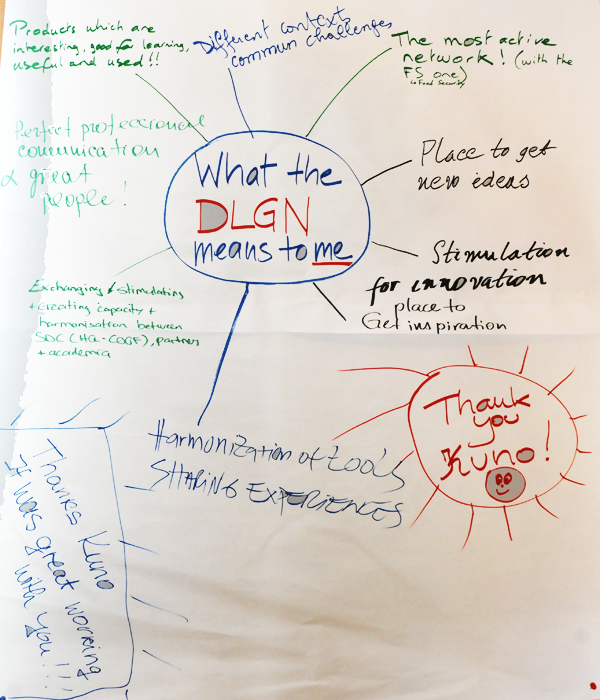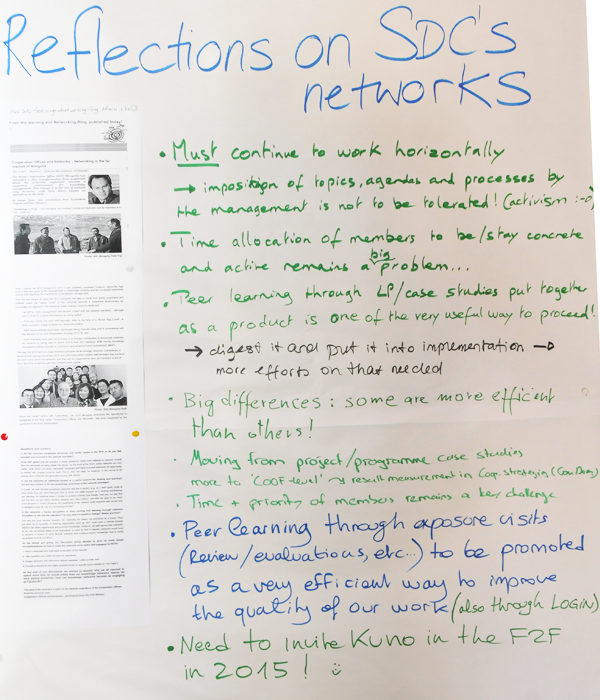The Net
You can download three group pictures here: 1 / 2 / 3
Future priorities – action planning
What should be the future priorities of the network? To find out, participants formed groups, decided on one priority and then tried to sell this priority to other participants in a market place environment. How well each proposition was received is visible on the panels by counting the signatures:
In summery the Decentralization and Local Governance Network DLGN identified the following challenges for future learning activities at the F2F in Aswan:
- Already existing tools like local governance assessment are useful to improve steering and reporting and do have the potential to increase impact of programs. However, they are not yet applied to their full potential, and the DLGN should develop its efforts to broadly introduce them.
- Improve our competences in analyzing power relations and do coherent political economy analysis, in order to better adapt SDC’s strategies to local contexts (best fit instead of general best practice). This calls for strengthened offers in training and capacity development.
- Analyze the role of so far ‘ignored’ actors like political parties and legislative bodies. According to their potential as drivers and restrainers of democratic change, cooperation strategies should be developed which take these actors into account (members ask for guidance on that).
- Invest more into innovative approaches on citizen-led-accountability. Visual methods presented at the F2F and the recommendations issued from the learning project “civil society participation and accountability” show how SDC can go beyond the present practice, on policy as well as in practical cooperation.
- Money (municipal funds) is key for improved local governance. Fiscal decentralization including PEA and capacity development has a central place in all strategies on DLG and must be adequately considered in learning and training.
- In regard to assessing results of programs, important lessons from the learning project “outcome measurement” have led to recommendations, including a set of indicators, which the DLGN members can use in future.
- On a multilateral level, Governance must be seen and treated as a „strategic enabler“, in particular in e Post-2015-MDG agenda. the DLGN has a close link and cooperation to the DeLoG network which can be used as a transmitter of these policy quests.
What the network means to me:

Using Twitter for social reporting
The f2f uses a variety of reporting and communication instruments: Blog, photo, video, Facebook… and Twitter. Several participants wrote their first tweet during the workshop. We asked a few of the die-hard twitters why and how they use this media.
Reflection on SDC networks

